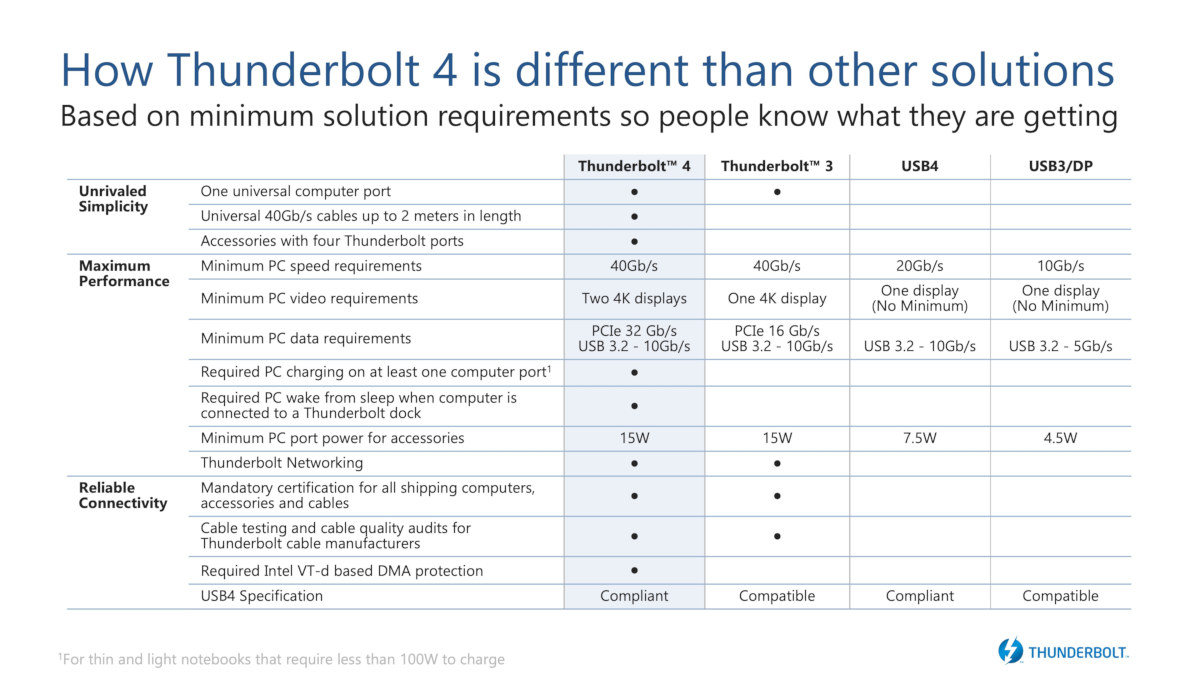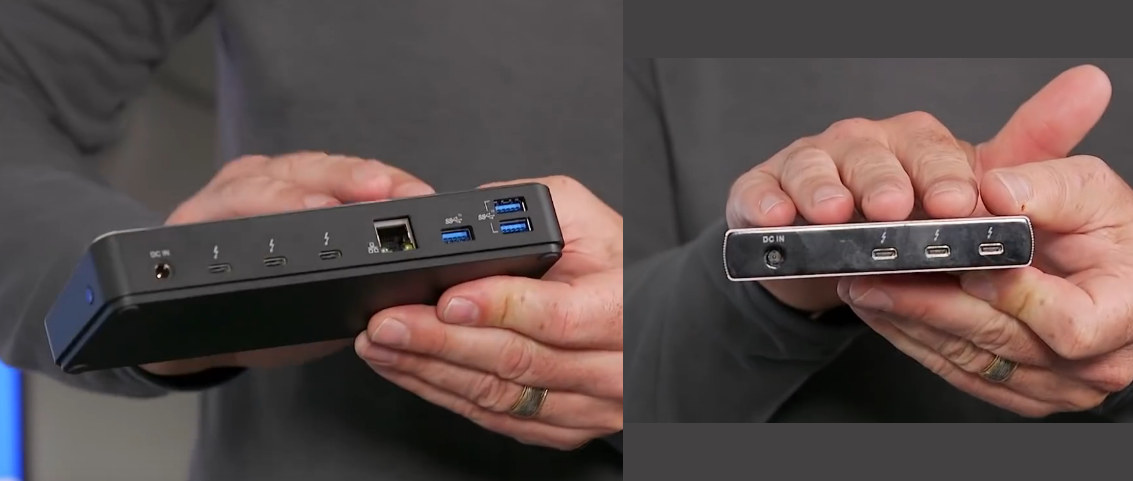Intel has just introduced Thunderbolt 4 universal cable connectivity solution for data, video, and power with up to 40 Gbps bandwidth, and USB4 specification compliance. The new standard can support up to four Thunderbolt ports in docks and universal cables up to 2 meters in length.
Compared to Thunderbolt 3, Thunderbolt 4 doubles the minimum video and data requirements leading to support for two 4K displays or one 8K display, and PCIe storage speeds up to 3,000 Mbps. It also enables PC charging on at least one computer port and allows you to wake your computer from sleep by touching the keyboard or mouse when connected to a Thunderbolt dock.

It also adds mandatory Intel VT-d-based direct memory access (DMA) protection to helps prevent physical DMA attacks. The first processors to integrate Thunderbolt 4 will be “Tiger Lake” mobile processors, and the company also announced the Thunderbolt 4 controller 8000 series compatible with existing Thunderbolt 3 PCs and accessories:
- JHL8540 and JHL8340 host controllers for computer makers.
- JHL8440 device controller for accessory makers.
The first computers and accessories with Thunderbolt 4 ports are expected later this year and include “Project Athena” laptops.

Intel also showcases two Thunderbolt 4 docks with one input port connected over a single 2-meter cable to a laptop for data, video, and power, and offering three downstream TB 4 ports as well as more traditional ports such as USB 3.0, Gigabit Ethernet, SD card slot, etc…
The video below shows the laptop driving two 4K displays while transferring data at around 2.9 Gbps from a Thunderbolt 4 SSD connected to the hub over, and all that, over a single cable.
You may find additional information in the press release.

Jean-Luc started CNX Software in 2010 as a part-time endeavor, before quitting his job as a software engineering manager, and starting to write daily news, and reviews full time later in 2011.
Support CNX Software! Donate via cryptocurrencies, become a Patron on Patreon, or purchase goods on Amazon or Aliexpress





I think this can standardize the principle of having a single cable on every desk, bringing power, video, USB, network, and could at least partially compensate for the loss of network connectors on many laptops. The USB cable would just become the cable that links your PC to the enterprise (and one day we’ll see an anti-virus for USB cables which sniffs all exchanges and protects the enterprise network from the PC’s malware, unless companies cannot file a lucrative patent due to the prior art constituted by my comment here) 🙂
> could at least partially compensate for the loss of network connectors on many laptops
BTW: Thunderbolt is also some sort of network connector. Starting with macOS 10.9 Apple shipped “IP over Thunderbolt” in 2013 and with the slowest laptop that was lying around back then (my daughter’s MacBook Air from 2011) I achieved +750 MB/s (MB, not Mbit).
I know one customer where the graphics department consists of 8 iMac Pro, two connected via 10GbE to the Ethernet network, the other 6 connected via Thunderbolt to those two ‘bridge iMacs’.
I wonder if they’ll be able to carry over good bits like that when they do switch to ARM. My gut feeling is the IO options will suffer greatly.
An ‘Apple spokesperson’ told: ‘We remain committed to the future of Thunderbolt and will support it in Macs with Apple silicon’.
We’ll see what that means when real hardware is available…
> The new standard can support up to Thunderbolt ports in docks
I guess there’s a ‘four’ missing…
Considering how many devices still use the ancient USB 2.0 ports, expect this and USB 4.0 to become standard by about 2030.
Hell, Intel can’t even get to a point of making HDR a default option for HDMI in their devices, so I won’t be holding my breath.